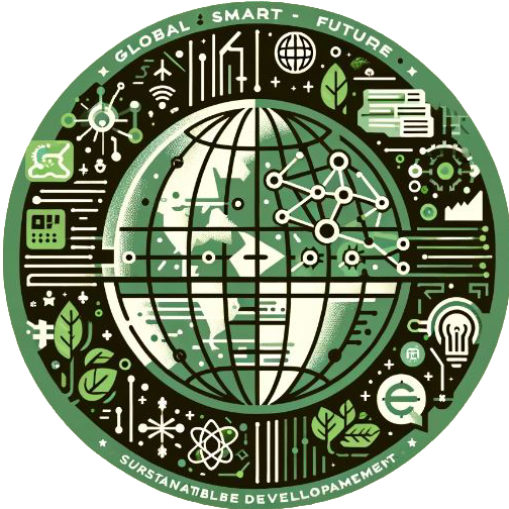GSF › Forums › Ship Forum › ASEAN-Korea Cooperation Project Proposal
- This topic is empty.
-
AuthorPosts
-
2025-05-09 at 10:00 pm #2613
Do Kyong Kim
KeymasterASEAN-Korea Cooperation Project Proposal
Climate Adaptation in the Mekong River Basin through Hydrogen Hybrid Vessel Deployment and Environmental Monitoring
(Hydrogen Hybrid Vessel for Mekong River Basin Monitoring and Climate Adaptation)
1. Project Overview
-
Project Title: Climate Adaptation in the Mekong River Basin through Hydrogen Hybrid Vessel Deployment and Environmental Monitoring
-
Project Type: Multilateral cooperation under the ASEAN-Korea Cooperation Fund (AKCF), Mekong-Korea Cooperation Fund (MKCF), and KOICA ODA programs
-
Key Partners: RIMS (Korea Research Institute of Ships and Ocean Engineering), DRAGON-Mekong Institute, Mekong Institute, ASEAN-Korea Centre
-
Target Countries: Vietnam, Cambodia, Laos, Thailand, Myanmar
2. Background
The Mekong River Basin is increasingly vulnerable to climate change, water pollution, ecological degradation, and transboundary security risks.
As the lifeline of five countries, the Mekong River demands cross-border cooperation and scientific, technology-based monitoring solutions.
Korea possesses advanced hydrogen fuel cell-based vessel technologies and smart environmental monitoring capabilities that can be deployed as part of regional partnerships with Mekong countries.
3. Objectives and Expected Outcomes
Category Description Main Objective Strengthen climate change adaptation by implementing real-time environmental monitoring across the Mekong River Basin using hydrogen hybrid vessels Environmental Impact Reduce carbon emissions, enhance water quality management, support blue carbon tracking Cooperation Impact Strengthen ASEAN-Korea sustainable development partnerships and promote evidence-based environmental governance Alignment with SDGs Contributes to SDGs 6 (Clean Water), 13 (Climate Action), 14 (Life Below Water), 17 (Partnerships)
4. Project Components
Component Activities Hydrogen Hybrid Vessel Deployment Development of 14-meter vessels powered by hydrogen fuel cells and battery-based hybrid propulsion River Basin Monitoring Real-time data collection on water quality, biodiversity, climate parameters, and pollutants Smart ICT Integration Implementation of AIS, LoRa networks, and environmental sensors for real-time analysis and data sharing Capacity Building Technical training and policy seminars for local government officials and researchers Pilot Operations Selection and implementation in 3–4 strategic locations along the Mekong in Vietnam, Laos, Cambodia, and Thailand
5. Institutional Cooperation Framework
Role Institutions Responsibilities Korean Side RIMS Vessel design, technology transfer, system integration Regional Partners Mekong Institute, DRAGON-Mekong Institute Field coordination, data collection, policy linkage Government Partners Ministries of Environment and Water Resources in Vietnam, Cambodia, Laos, and Thailand Regulatory cooperation, local pilot operations International Partners ASEAN-Korea Centre, KOICA, CTCN Financial and technical support, international coordination
6. Budget and Funding Sources
Budget Item Source Use $100,000 AKCF + MKCF Vessel development, workshops, field operation $50,000 KOICA ODA Training programs, policy advisory, stakeholder engagement $25,000 CTCN Technology upgrade, ICT equipment, blue carbon integration
7. Conclusion and Recommendation
This project offers a strategic model for climate resilience and environmental protection in the Mekong River Basin through Korean technology and multilateral cooperation.
It promotes joint benefits for Korea and ASEAN by strengthening climate data systems, advancing clean mobility, and supporting regional green development.
Partnering with institutions such as the Mekong Institute and DRAGON-Mekong Institute ensures local ownership and policy linkage, making this a scalable model for ASEAN-Korea cooperation in environmental innovation.
The inclusion of Thailand as a pilot site will expand geographical diversity and policy engagement within the lower Mekong region.한-아세안 협력사업 제안서
메콩강 유역 모니터링 및 친환경 하이브리드 선박 도입을 통한 기후변화 대응 협력사업
(Hydrogen Hybrid Vessel for Mekong River Basin Monitoring and Climate Adaptation)
1. 사업 개요
-
사업명: 메콩강 유역의 환경 모니터링 및 기후변화 대응을 위한 수소 연료전지 하이브리드 선박 도입 사업
-
사업유형: 한-아세안 협력기금(AKCF), 메콩-한국 협력기금(MKCF), KOICA ODA 기반 다자협력형 사업
-
주요 파트너: RIMS(한국선박해양플랜트연구소), DRAGON-Mekong Institute, Mekong Institute, ASEAN-Korea Centre
-
대상국: 베트남, 캄보디아, 라오스, 태국, 미얀마
2. 사업 배경
메콩강 유역은 기후변화, 수질오염, 생태계 훼손, 국경지역의 환경 안보 등 복합적인 문제에 직면해 있다.
메콩강은 5개 국가를 연결하는 핵심 수자원이자 공동 환경관리를 위한 핵심 공간으로, 과학기반의 정밀 모니터링과 기술협력이 절실하다.
한국은 수소 연료전지 기반의 친환경 선박 기술과 스마트 환경 모니터링 기술을 보유하고 있으며, 메콩 지역 국가들과의 전략적 협력이 가능하다.
3. 사업 목적 및 기대효과
항목 내용 주요 목적 수소 하이브리드 선박을 활용한 메콩강 유역의 실시간 환경 모니터링 체계 구축 및 기후변화 대응 역량 강화 환경적 효과 탄소 배출 저감, 수질 개선, 블루카본 기반 구축 협력 효과 한-아세안 지속가능개발 파트너십 강화 및 과학기반 정책 수립 지원 지속가능발전목표(SDGs) 6번(물과 위생), 13번(기후변화 대응), 14번(수생태계 보호), 17번(파트너십)에 기여
4. 주요 사업 구성
분야 주요 내용 친환경 선박 개발 수소연료전지 + 배터리 기반 하이브리드 추진 시스템을 탑재한 14m급 선박 개발 메콩강 유역 환경 모니터링 수질, 생물다양성, 기후, 유속, 오염물질 등 실시간 데이터 수집 및 분석 스마트 ICT 시스템 구축 AIS, LoRa, 센서 네트워크 기반 통합 모니터링 시스템 구현 교육 및 역량강화 현지 공무원 및 연구자 대상 기술교육, 정책세미나, 연수 운영 시범운영 베트남, 라오스, 캄보디아, 태국 내 3~4개 주요 지점에서 시범 사업 실시
5. 협력 체계
구분 기관 역할 한국 측 RIMS 선박 설계 및 기술개발, 시스템 통합 메콩 지역 협력기관 Mekong Institute, DRAGON-Mekong Institute 현장 운영, 데이터 수집, 정책 연계 지역 정부 파트너 베트남·캄보디아·라오스·태국 환경부 및 수자원청 제도 구축, 시범사업 실행 및 확대 국제협력기관 ASEAN-Korea Centre, KOICA, CTCN 재정 지원, 기술 자문, 국제연계 역할 수행
6. 예산 및 재원 활용 방안
재원 항목 출처 주요 활용 목적 100만 달러 AKCF + MKCF 선박 개발, 공동 워크숍, 시범 운영 비용 50만 달러 KOICA ODA 교육훈련, 정책 자문, 역량강화 프로그램 운영 25만 달러 CTCN ICT 시스템 및 블루카본 모니터링 기술 고도화 장비 및 도입
7. 결론 및 제언
본 사업은 메콩강 유역의 기후 및 생태 환경 변화에 대응하기 위한 친환경 기술 기반 협력모델로,
수소 연료 기반 선박을 활용한 기후변화 대응형 수상 모빌리티 구축과 스마트 모니터링 체계 정착을 통해
한-아세안의 환경 기술 협력, 탄소 감축 공동이익, 지역 파트너십 강화를 실현할 수 있다.
특히 태국을 포함한 시범사업 추진은 지리적 다양성과 정책 파급력을 확대하며 메콩 지역 전체의 지속가능한 발전에 기여할 수 있다. -
-
AuthorPosts
- You must be logged in to reply to this topic.
